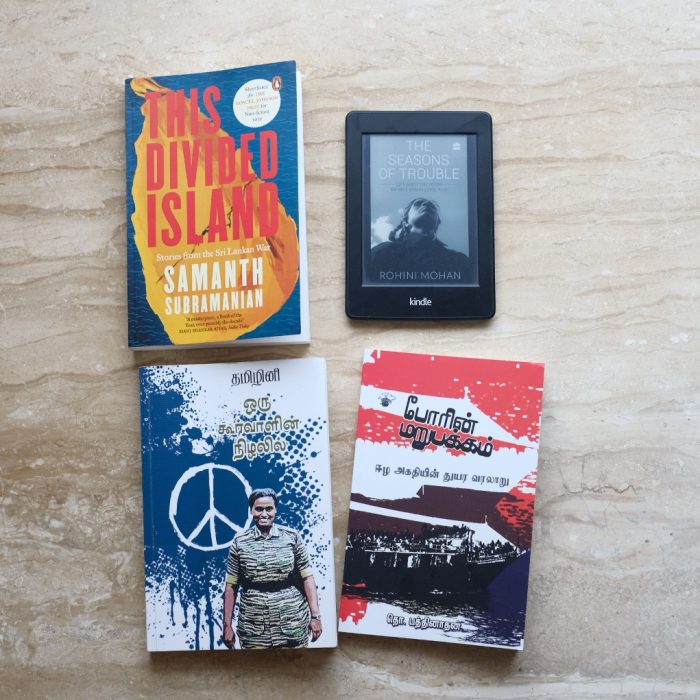
Piqued by Perarivalan’s news during lockdown, a casual google search on Srilankan civil war snowballed into a month long affair, watching / reading multiple books and documentaries. Read these 4 books in that period.
‘This divided island’ offers a macro perspective of the war and is well researched, offering perspectives of people from both sides. ‘Seasons of trouble’ offers a micro view, telling the story of the war through the experiences of 2 families. ‘Koorvaalin nizhalil (In the shadow of a sword is the English version) is Tamizhini’s (she was a top political leader inside LTTE) personal view of the activities of the Tigers – largely laced with criticisms and despair that such a costly battle brought their people nothing in the end. She admires Prabhakaran, but makes it clear that he was not capable of a complete solution for her people. There is a chapter on peace talks and that alone is worth reading the book for – and you can see how Tigers messed things up for themselves post 2000. All these 3 are well written books, and Tamizhini’s book is my favourite in this lot, though it could’ve done with better editing. English translation is good too, I believe. The last book is the story of a refugee who escaped to India in 1990 and had no less of a struggle in the politicised refugee camps. Written like a self-pitying sob story, I didn’t like it much, but nevertheless appreciate the author’s honesty and is useful in understanding life in those camps.
I was less interested in politics (who was right, did one party commit more atrocities than other, etc) of the struggle, but more on the human side. What makes an individual cling to an assumed identity (esp religion, language or region based)? What drives one to claim his identity is superior/original to that of others? What pushes the other to fight back? Are we innately insecure beings, with an innate inability to appreciate differences in people who assume a different identity, the ones who we see as “others”? Is this a nature-equipped mechanism in all of us? Why do so many people struggle with conflict resolution? Did evolution miss a trick by not naturally equipping us with such a skill? Are humans not really designed to live in peaceful societies for too long? Will there always be groups, and with groups, an “us vs them” narrative? These are questions that come to mind.
With an “us vs them” narrative, it becomes all too easy to shrink the humanity of “them” and turn them into enemies – and hence, making punishing such groups a justifiable act. This I suppose is ingrained in societies collectively and will probably never end. Genocides, civil wars, capitalism driven economic sanctions… it goes on. Saying this matter of factly. It is hard to judge this with black and white viewpoints – world is grey!